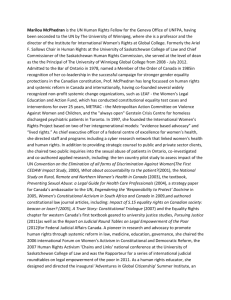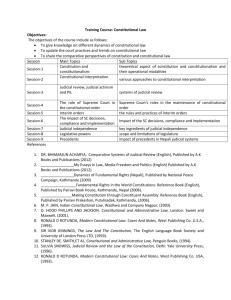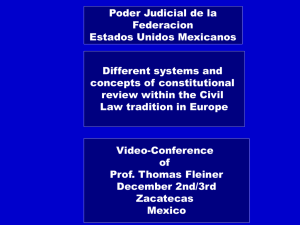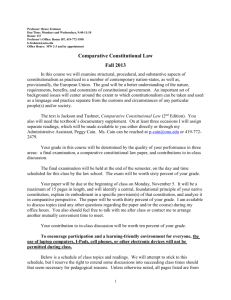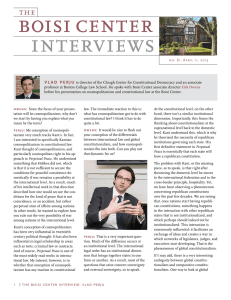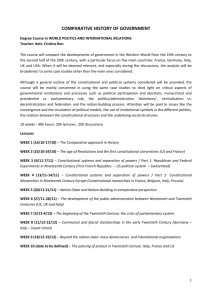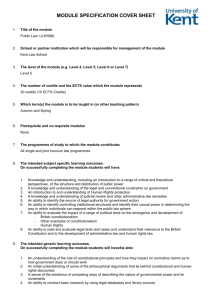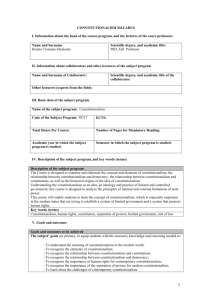Programme
advertisement
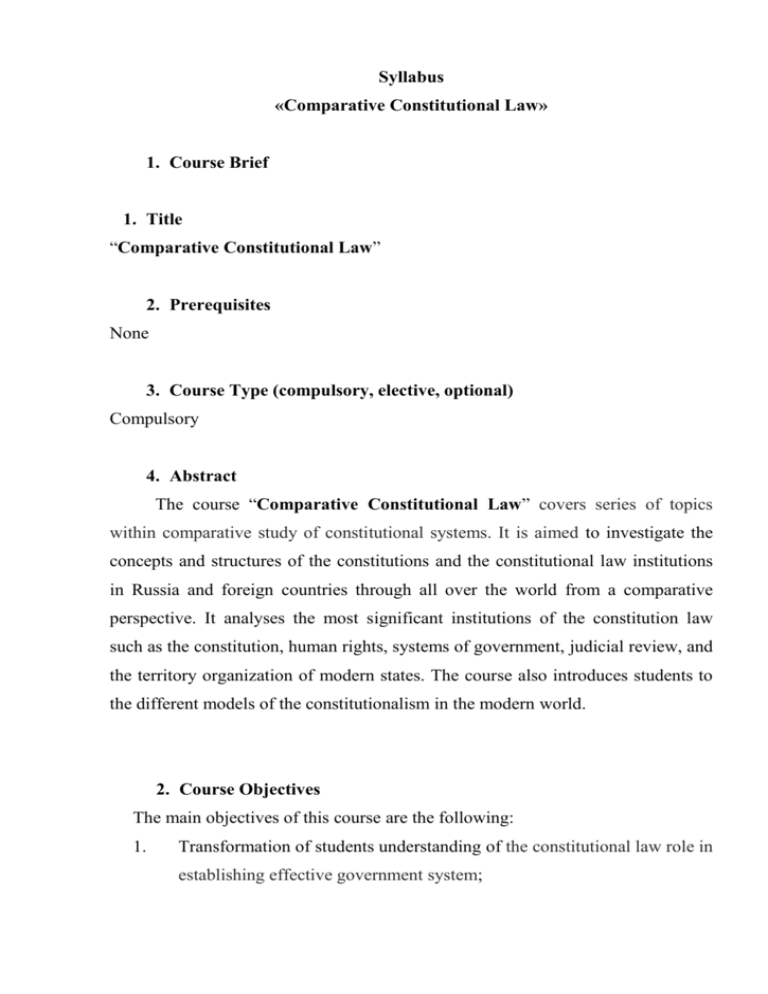
Syllabus «Comparative Constitutional Law» 1. Course Brief 1. Title “Comparative Constitutional Law” 2. Prerequisites None 3. Course Type (compulsory, elective, optional) Compulsory 4. Abstract The course “Comparative Constitutional Law” covers series of topics within comparative study of constitutional systems. It is aimed to investigate the concepts and structures of the constitutions and the constitutional law institutions in Russia and foreign countries through all over the world from a comparative perspective. It analyses the most significant institutions of the constitution law such as the constitution, human rights, systems of government, judicial review, and the territory organization of modern states. The course also introduces students to the different models of the constitutionalism in the modern world. 2. Course Objectives The main objectives of this course are the following: 1. Transformation of students understanding of the constitutional law role in establishing effective government system; 2. Investigating actual constitutional law problems and analysis of different approaches to these problems solutions in Russia and foreign countries. 3. Course Learning Outcomes Students should gain: Knowledge of: ─ The concepts of constitutionalism, constitution and constitutional law; - The most important institutions of the constitutional law such as human rights, systems of government, judicial review, and the territory organization of modern states. Skills and abilities to: ─ Deal with the notes and sources of the constitutional law; ─ Research and analyze the texts of the constitutions, judicial decisions and scientific works; ─ Recognize and analyze the essence and importance of the distinctions between the ideas and instruments, using by the constitutions and constitutional legislation in different countries; ─ Think systematically in terms of constitutional law and its role for different structures of governments and establishment of effective government system. Students should gain the following competences: To deal with judicial information (to search, evaluate, range and use the information, necessary for accomplishment of scientific and professional tasks); To carry out the academic, educational and practical professional activities in the constitutional environment; To use the juridical, comparative and other specific methods; To recognize, analyse and think about solutions for legal problems in the sphere of the constitutional law. 4. Course Plan 1. Fundamental constitutional concepts 2. Human rights 3. Territory organization in the modern countries 4. The systems of government in different countries a. Parliament b. Executive power c. Judicial power and judicial review d. The separation of powers and separation of government functions in different countries 5. Models of the constitutionalism in the modern world a. Real (competitive, equilibrium) constitutionalism models and their attributes - State power and human liberty balance as the philosophical foundation of the real constitutionalism - Power and opposition balance as the political backbone - Separation of powers as the managerial basis b. Quasi – constitutionalism models (autocratic, non-equilibrium) and their сharacteristics - Religious (Islamic) model - Party (socialist) model - Inertial (post-socialist) model - Military (Latin American) model - Tribal (African) model c. Elite constitutionalism models. Their features and examples - Power and opposition - Separation of powers - State power and human liberty dis-balance 5. Reading List a. Required - Hirschl R. Comparative Matters. The Renaissance of Comparative Constitutional Law. OUP. 2014. 320 p. - The Oxford Handbook of Comparative Constitutional Law. Ed. by Michel Rosenfeld a. András Sajó. Oxford : OUP, 2013. 1396 p. - Чиркин В.Е. Сравнительное конституционное право (Comparative Constitutional Law): учебное пособие для магистрантов и аспирантов. Москва : Юриспруденция , 2011. 397 c. b. - Optional Strashun B. A. Constitutional Law: Notion and Sources // Kutafin University Law Review. 2014. Vol.1. Issue 1. P. 5-22 ─ Sujit Choudhry, Method in Comparative Constitutional Law: A Comment on Law and Versteeg, 87 N.Y.U. L. Rev. 2078 (2012), Available at: http://scholarship.law.berkeley.edu/facpubs/2253 6. Methods of Instruction Using interactive educational technologies (problematic lectures, Socrates method, work in small groups); Using ratings and accumulative system of control. 7. Special Equipment and Software Support (if required) Power-point, LMS, Internet.


